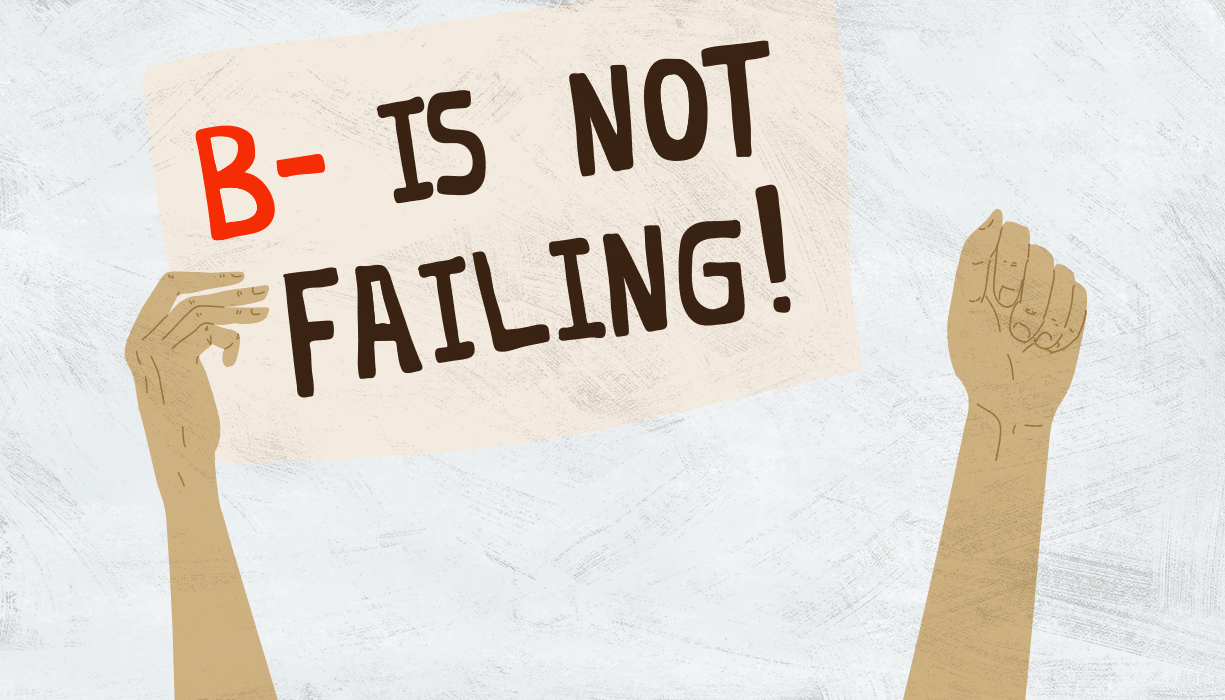In protest of a department policy that considers a grade of B- or below to not be a passing grade, Rudy Hinojosa, Public Engagement media studies student and former New School student senator, launched a hunger strike.
In late January, Hinojosa’s advisor notified him that he needed to retake Media Management and Leadership, a required course in the Public Engagement Master of Science in Media Studies. Hinojosa was shocked. “I was never aware that a B- would be considered failing,” he said.
The strike, which he started in February, lasted 54 hours. Hinojosa first went 24 hours without food, and then passed out from exhaustion aggravated by health issues for an additional 30 hours, he said.
When he found out about the policy, Hinojosa thought, “I’m going to do what’s in my power, and right now, I think a ridiculous policy requires dramatic response,” he said.
While Hinojosa’s hunger strike is an extreme example, his frustration is shared by other students who complain that there’s a patchwork of GPA requirements that are difficult to find and vary by school, program and sometimes class.
“The website says one thing, my professor says another, the chair says a third thing. What exactly is the rule?” asked Jennifer Hsieh, a first-year Strategic Design and Management masters student at Parsons.
Confusion about the requirements exists even among the faculty.
“I know when I started teaching here 12 years ago, I didn’t even know that my students had to have a B at least or they’d have to retake the course,” said Margaret Bates, a media studies professor at the Schools of Public Engagement. “My experience, at least with the students I’ve had, is that they’re not aware of it.”
While course credit is awarded for a grade of B-, some programs mandate that students cannot continue on in core classes for their major without receiving a higher grade. For many students, this means retaking those classes or choosing a new major.
Each college publishes an annual catalog detailing requirements for each course of study, but few students know these catalogs exist.
“Honestly, it’s not really that accessible.” said Yu Ling Wu, a BA/BFA student at Lang and Parsons, who is graduating this year. “I didn’t know that that even existed.”
On the university’s website, the Lang catalog can be accessed through a small gray sidebar on the side of pages of each major or minor. It is not listed on the general Lang academics page or other pages on the site.
The Parsons catalog is similarly inaccessible. It is not available on webpages for majors or minors, but through a link for “Parsons Catalog” under the Academic Policies page, which is under Advising, under Academics.
“I think the website in general is not good. The whole university website is not very accessible,” said Katayoun Chamany, the department chair of Lang’s Interdisciplinary Science program.
Policies regarding grade requirements for classes vary by division, department and major.
The baseline standard at Lang, available online, states that students must receive a minimum C grade for a course to count toward the completion of their majors. In Culture and Media, Literary Studies writing concentration, Global Studies, and Journalism + Design, students must receive a B or higher in introductory courses for the major.
Parsons undergraduate programs typically require a minimum cumulative GPA of 2.0, while graduate programs typically require minimum 3.0.
In individual courses, a grade of D or above is required for credit in undergraduate programs, according to Parsons department chairs Ben Katchor, Illustration, and Justin Bakse, Design and Technology.
Parsons graduate programs generally count a C- grade or above as passing, said John Sharp, director of Parsons’ MFA Design and Technology program.
Policies at the Schools of Public Engagement vary widely. The MFA Creative Writing and International Affairs programs do not currently having corresponding policies in place, program chairs Luis Jaramillo and Stephen J. Collier told The New School Free Press. The MA and MS Media Studies programs demand a grade of B or higher in required courses.
“I was basically just thinking, okay, if this is difficult to process for me, imagine someone who’s about to graduate, or an international student whose visa is about to run out, or someone who’s about to become ineligible for federal loans,” Hinojosa said.
“Like many universities, The New School allows individual programs to determine the academic standards for required coursework. These standards vary depending on the program, subject and course to ensure students have the right skills and knowledge,” said the office of Provost Tim Marshall in an email statement to the Free Press.
“I’m just glad I got at least a little attention on it,” Hinojosa said. “I hope it progresses into positive change, and I’m confident in the future.”
Illustration by Ashlie Juarbe







